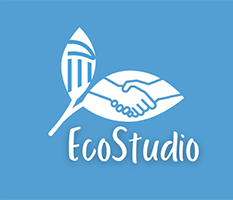Suggest a Project
We are always looking for more mentors/clients and projects!
Suggest a Project
The ideal EcoStudio projects would:
- Focus on a project in your 1-5 year workplan. Often, organizations use EcoStudio interns to take on a project that they otherwise would not have the time/resources to take on.
- Have a significant sustainability impact. This project should help to save energy, conserve water, protect a natural resource, reduce waste, raise awareness about an environmental or sustainability challenge, etc.
- Have a dedicated staff person who is willing to spend at least 1-2 hours a week for the semester to mentor the student(s) working on their project
What Types of Projects Do We Offer?
- Internships – these are semester-long or longer and typically involve 10 hours a week of work during the academic year or 10-20 hours per week of work over the summer. Internships can be paid or un-paid. In internships, the client serves as the primary mentor for the student, though the student will still have a faculty advisor. Typically, internships are worth three credit hours, pass/fail. Students who initially commit to a semester-long internship are encouraged to discuss with their mentors the possibility of extending for an additional semester, allowing for flexibility in their commitment and ability to make a larger impact within the organization. This option enables students to assess their fit with the organization and the value of the experience before deciding on a longer engagement.
- Independent Research – these are semester-long, typically 3-6 hours per week, and allow students to work with mentors/clients ranging from campus operations and facilities staff or off-campus companies, municipalities, or non-profits. Students can work on their research at the client's location, in the field, at home, or at the EcoStudio. Students are paired with faculty or graduate-student advisors. Typically, independent research projects are worth one to two credit hours, pass/fail.
- Guided Research – these are semester-long (or longer) projects that are undertaken in partnership with UNC faculty. These projects are the ideal foundation for, and may lead to, a Senior Honors thesis. Academic credit is for 1-6 credit hours, letter grade only.
Funding
Internships are a powerful experience for students that allow them to sample different career paths. Students will typically spend 9-10 hours per week on their internship plus another hour per week at our EcoStudio meetings. Given the importance of the experience and the major time commitment, we ask that our partner organizations strongly consider offering funding for our students, though funding is not required to participate in EcoStudio. Typically, our students are paid $15-$20 per hour.
Guidelines for Mentors
Follow these simple suggestions for creating a great internship experience!
Download Guidelines for Mentors (pdf)
Questions about how to develop a successful EcoStudio project proposal?
Please contact EcoStudio at ecostudio@unc.edu
Past and Present Clients

